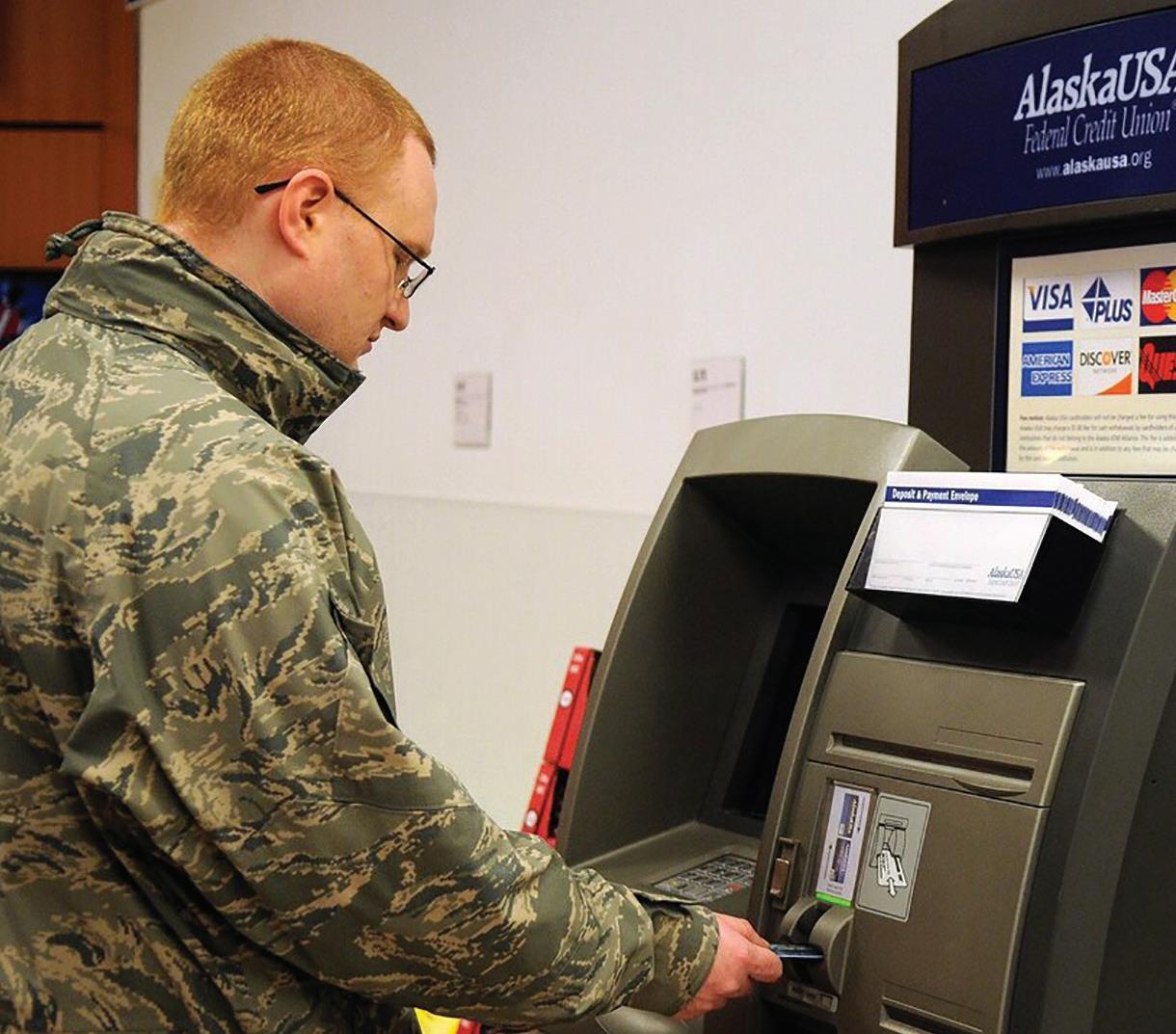
22 minute read
Force Majeure in Arkansas
Force Majeure In Arkansas: Force Majeure In Arkansas: Contractual Provisions and the COVID-19 Pandemic
many Arkansas businesses are temporarily shutting their doors in light of COVID-19, leading to uncertainty regarding the status of their contracts. Most contracts have a "force majeure" clause, in which by Timothy W. Grooms & Robbi Riggs Rosenbaum the parties agree to waive some or all responsibilities in light of unexpected activity constricting a party's operations. Parties should understand their rights and responsibilities under their contracts as they consider how to respond to the evolving COVID-19 situation.



Language of the Clause
Parties seeking to suspend performance should first look to the language of their contract's force majeure clause, which must include language encompassing COVID-19. If the clause includes examples like "pandemic" or "quarantine," the party should be able to invoke the clause. However, most force majeure clauses are not so specific. If the clause references a "government action" or "government order," a party could argue that certain mandatory governmental directives excuse performance under the clause.
Most force majeure clauses include a catch-all phrase referring, for example, to all other acts not reasonably within control of a party. Arkansas courts, however, limit these catch-all phrases to situations resembling the clause's specific terms. On the other hand, courts would interpret the catch-all provision broadly when the force majeure clause contains no specific terms.
Impossibility
To qualify for excusal under most force majeure clauses, the COVID-19 pandemic must make continued performance legally or physically impossible. Legal impossibility encompasses circumstances where government restrictions make performance illegal, giving businesses facing mandatory closures the strongest case. Physical impossibility, on the other hand, is difficult to prove. For instance, a state may strongly recommend that its residents avoid public places in light of COVID-19, leading foot traffic at a tenant's business to dissipate. The tenant cannot claim excusal under the force majeure clause based on the decline in business, for operation is still physically possible.
Alternatively, the force majeure clause may be broader, encompassing acts making performance "impossible or reasonably impracticable." However, parties should hesitate before arguing impracticability. Arkansas courts frequently distinguish between impossibility and impracticability in theory, but rarely in practice.
Mitigation
Arkansas courts require mitigation before granting excusal, generally requiring diligent – but not extraordinary – efforts. Courts are most willing to excuse a party's breach when the party has attempted to mitigate the damage. Arkansas courts have refused to grant excusal when the breaching party did not resume performance as quickly as reasonably possible. Business owners should keep this in mind as they decide on a re-opening date.
If a party tries to cancel performance under the force majeure clause, the other party should offer mitigation options like reduced rent or delayed due dates to prevent total cancellation. Arkansas courts do not look favorably on attempts to call off performance when an open path to mitigation exists.
For many businesses dealing with COVID-19, curbside delivery and online services are effective mitigation strategies. Parties with these mitigation options may face difficulty invoking their force majeure clauses to terminate agreements in their entirety.
Notice
Most force majeure clauses require notice to the other party, and notice is a good idea even when not required. The party invoking the clause should write a letter to the other party detailing the situation, discussing why continued operation is impossible and why mitigation is unavailable. Courts in Arkansas take the notice requirement seriously.
Scope of Relief
Force majeure clauses differ in scope. For example, many force majeure clauses in leases provide for closure without violating the covenant of continuous operation but do not excuse payment of rent during the time of closure. On the other hand, clauses in leases excusing parties from "any term, condition, or covenant" of the lease would excuse payment of rent as well.
Additionally, as noted herein, Arkansas courts grant excusal only to the extent that the parties mitigate their losses. Courts, therefore, will typically excuse performance only for a reasonable time.
Other Considerations
Courts universally refuse to imply force majeure clauses in contracts. A party without a force majeure clause – or a party whose force majeure clause does not encompass the pandemic – would need to rely on the common law defenses of frustration of purpose or commercial impracticability.
Under the frustration of purpose defense, a party need not fulfill its obligations under the contract if the underlying purpose of the contract can no longer be achieved. Parties generally raise this defense when performance is possible, but enforcing the contract as written would be inequitable because of changed circumstances. Courts will typically not accept "making a profit" as the underlying purpose of a contract under this doctrine – otherwise, performance could be excused in all unprofitable contracts. Parties raising this defense must show a non-profit purpose that was frustrated; for example, an accounting firm who contracted for cleaning services for a year could raise it to cancel the contract in whole or in part if the firm voluntarily limited access to its office. The firm's performance (payment of money) is still possible, but the purpose of the contract (a clean office) has been frustrated by the pandemic, since the employees are working from home.
The commercial impracticability defense arises when a party's performance becomes impracticable by the occurrence of an event that was assumed not to occur when the contract was made. Unlike under the frustration of purpose defense, performance here must be impossible or impracticable. This defense would thus be most effective for businesses affected by mandatory closures, as discussed above.
Finally, the parties may try to work out an agreement on their own. If the force majeure clause is not helpful to a breaching party, and the other party is willing to negotiate, the parties may sign an addendum to the contract. As is typically the case, negotiation may be the best strategy.
About the Authors
Timothy W . Grooms is a Managing Member of Quattlebaum, Grooms & Tull PLLC where his practice focuses on real estate, banking, and commercial lending transactions. tgrooms@QGTLAW.com.
Robbi Riggs Rosenbaum, a Spring 2020 graduate of the Bowen School of Law and a Certified Public Accountant, is joining Quattlebaum, Grooms & Tull PLLC as an Associate where her practice will focus on real estate and commercial transactions. rrosenbaum@QGTLAW.com.
How U.S. Banks Can Start Planning to Deliver Crypto Custody Services

by Thomas Trepanier
it’s official: banks can now earn a new revenue stream, after fresh guidance from the OCC clarifying that all nationally chartered U.S. banks may provide custody services for cryptocurrencies. While receiving a regulatory green light is good news, this raises a very big question for banks: How do we do this?
The OCC guidance provides direction and a higher comfort level for banks curious about the crypto sector. Those interested in moving forward can begin actively investigating exactly how secure methods of digitizing and modernizing traditional banking activities can be implemented.
An Opportunity Emerges
Virtual currencies are a complex product—while they serve as a payment mechanism for willing sides of a transaction, they are treated by the IRS as an asset, and their volatility can be high. Crypto holders often store their unique keys confirming their ownership of the currency in a physical format that requires custody to be kept safe.
As a payment platform, crypto represents a challenge to the payment system built and operated by banks. But as an asset, it presents a business opportunity. The OCC’s clarification that
U.S. banks can hold a cryptocurrency’s unique cryptographic keys clears the way for them to custody their customers’ digital assets. In fact, this may turn the tables in banks’ favor, as they already have an established presence and loyal customer base, easing their onramp into cryptocurrency. 32 The Arkansas Banker n Fall 2020
Banks that were previously merely intrigued by crypto custody now sense an opportunity. The hard work begins now, as banking management realizes that there are several stages before launching their first virtual vault. They must develop a full understanding of cryptocurrency, blockchain and digital assets, learn how to provide scalable custody services, as well as achieve deep expertise on all the related technology, security, and regulatory issues that come with reliably safeguarding crypto for both institutional and retail customers. It’s a big responsibility, but one that banks should inevitably accept to keep pace with market demands.
A Roadmap for Banks to Become Crypto Custodians
The following questions represent a roadmap for banks on their journeys to becoming crypto custodians:
1. Many retail and professional investors are used to having established players from the crypto world, like Coinbase, serve as their custodian, or acting as their own custodians via hardware wallets. How quickly will they warm up to having banks serve as their crypto custodian?
While retail customers are accustomed to having exchanges like Coinbase serve as their custodian, seeing banks participate can only be positive as they could potentially provide a better and more economical service. The best service providers with the best pricing will win.
Similarly, institutional customers should find this to be welcome news since banks are a known and trusted commodity. Adding cryptocurrency custody to their menu of products and solutions would be an added benefit.
2. Blockchain technology has matured over the last decade, with many technology platforms to choose from. How does a bank determine who the best vendors are?
Banks must master many new technologies before they can launch their crypto custody offerings. They will have to either develop in house, hire or acquire infrastructure for systems including hot and cold wallets, trading, transaction monitoring, AML monitoring, cybersecurity, payments and staking.
They must also consider the best network to join. Global instant settlement networks are now emerging that empower banks to settle with maximum transparency, speed and security while making the transfer of digital assets between institutions far more cost-effective. Sophisticated clients will prefer to work with a custodian that ensures their assets can be used to instantly settle across execution platforms and makes the most efficient use of capital for their trading strategies.
3. Which customer base should banks target first for crypto custody?
With its decentralized design, cryptocurrency has the power to solve many of the bottlenecks that have built up in traditional finance. Businesses or entities with the need for secure and efficient international cash transfer at the end of each day, such as a foreign pension fund, are one example of an early candidate for conversion. Wealth management firms actively diversifying their clients’ portfolios are also strong candidates.
4. How will banks attract the right personnel to help manage crypto custody internally?
Here’s where the worlds of traditional finance and crypto collide. Since banks currently have little in-house crypto talent, they will have to start getting aggressive. If they intend to hire people away from crypto firms, that talent will require serious upside to make a move.
The other option is through acquisition. We may soon see significantly increased M&A activity in crypto, as banks bid to buy up blockchain’s established players or intriguing new innovators. In many cases, acquisition may be the only real option for adding crypto custody capabilities, since many potential vendors are also now competitors to the banks that will want to hire them.
5. How much will adding crypto custody as a business unit cost?
The banking industry historically makes conservative risk assessments, and banks must determine not only their risk tolerance but also the readiness of their customers and other regulators. Although the OCC’s opinion carries weight, the more protection banks feel they have from additional regulators, the more they’ll be inclined to spend on crypto custody.
Compared to banks’ current legacy infrastructure, some investments are relatively inexpensive. Many essential custody applications are not latency-sensitive or super high-throughput and run on cloud services with proven security and robust data analytics, such as Snowflake and Amazon Web Services. The big expense comes from the blockchain implementation and requisite talent.
Joining an instant global settlement network can not only improve performance in key areas but mitigate costs too. The right network provides one-to-many connectivity that vastly streamlines communications with the thousands of digital asset players worldwide, increases security and reduces points of failure.
Boosting the Bottom Line
Now that more traditional regulators are signaling approval, we could see cryptocurrency values increase. More regulation helps provide transparency, which many investors have been seeking. The OCC’s opinion provides legitimacy and moves crypto further away from the “Wild West.” This is great timing; investors need new growth areas as the global economy evolves. Smaller markets that embrace crypto could position themselves as an attractive investment venue. Making U.S. banks crypto-compatible can only move the industry forward.
Thomas Trepanier is director of business development for Roxe at Apifiny.
This article was reprinted with permission from the American Bankers Association online website Risk and Compliance section.
o meet demand for banker education while maintaining safety in a pandemic, the Graduate School of Banking as successfully pivoted all its 2020 specialty schools virtual delivery this year. & GSB Wisonsin Pivots to Deliver Schools Online Adds New Digital Banking School to Meet Industry Needs t
Six schools will be offered online starting in September, including the Financial Managers School, Bank Technology Management
School, Bank Technology Security School, Sales and Marketing School and Human Resource Management School – all programs that have been very popular for years through traditional in-person delivery.
Additionally, to meet the educational needs. around innovation and digital banking, GSB also unveiled the nation’s first Digital Banking School – designed exclusively to help community bankers successfully move into or grow their digital presence.
“We are excited to offer our popular in-person schools virtually for our students. The distance education classes will still incorporate group discussions and networking that will enhance online learning. Students can expect the same quality content and outstanding faculty that they’ve come to expect from GSB’s in-person programs,” said Becky Patterson, vice president, education and professional development.
GSB’s newest offering, starting September 29, is the Digital Banking School which will feature 8 modules that cover the critical elements of developing and executing a successful digital bank – and will be led by a team of knowledgeable instructors including Eric Cook of WSI Digital Marketing, who is the school’s program coordinator.
Cook will be joined by JP Nicols and Jason Henrichs of FinTech Forge and Joe Sullivan of MarketInsights – who are just a few of an impressive faculty. The team of instructors includes a mix of innovation and FinTech consultants and active bankers.

Patrick Sells of Quontic Bank – who was recently named “2020 Digital Banker of the Year” by American Banker – is one of several practitioners who’ll share their real-world experiences of creating highly successful digital banks.
“Early enrollment indicates this will be a very popular program, which isn’t surprising given what we’ve heard from our Banker Advisory Board and others. To consumer expectations, many community bankers are focusing on digital product lines, online engagement, vendor partnerships and more” said Kirby Davidson, president and CEO. “There is a tremendous need for education in this area – and we’re proud to add this terrific school to our lineup of offerings that support community banking.”

"I believe this is the perfect time for GSB to launch a Digital Banking School. It's exactly what the banking industry needs right now, especially given what's taken place over the past several months as bankers have had to shift their strategies and adapt rapidly to new ways of serving and connecting with their customers digitally. Given the caliber of faculty who are involved and the sessions we have planned, this program will serve as a comprehensive expert's guide in all the various facets of a digital banking strategy. As a GSB graduate and faculty member for several other GSB programs, it's not only exciting for me - but a real honor - to be the section leader for this groundbreaking program," said Eric Cook, digital strategist with WSI and founder/chief mentor at TheLinkedBanker. com
Enrollment is limited – and waiting lists are anticipated for some schools – so early applications are strongly encouraged. To enroll in a GSB school, or to register for an online seminar, please visit www. gsb.org and choose your preferred program from the drop-down menu. Applications are now being accepted for all 2020 GSB specialty schools, as well as for an array of online seminars that are available year-round.
Bankers interested in enrolling for the next session of the Graduate School of Banking, which will be held August 1-13, 2021, in Madison, Wisconsin, can begin applying when 2021 enrollment opens in early September. Since the 2020 session was cancelled due to COVID, and all enrolled students were rolled forward to the next session, there is unprecedented demand for the limited seats that remain available – applying early is the best way to secure a seat before the school reaches capacity.
The Graduate School of Banking at the University of Wisconsin, which is sponsored by state banking associations from across the central United States, as well as the University of Wisconsin-Madison, was established in 1945 to provide bankers with an opportunity for advanced study and research in banking, economics and leadership. In addition to its flagship Graduate School of Banking, GSB offers specialty schools for Human Resource, Technology, Information Security, Sales, Marketing and Finance leaders in banking—plus online seminars across all areas of bank management.
For further information call 1-800-755-6440 or email www.gsb.org.
(Right photo) Eric Cook, Digital Strategist, WSI Digital, is the program coordinator for GSB’s Digital Banking School and also serves on the faculty of the Sales and Marketing School and Graduate School of Banking. (Above photo) 2019 GSB graduates gathering after commencement for photos and sharing memories.


(Left photo) GSB-Wisconsin graduates receive two credentials – a diploma in bank management and Certificate of Executive Leadership from the Wisconsin School of Business Center for Professional and Executive Development.
(Above photo) 2019 Sales and Marketing School attendees enjoying group discussions; small group interaction and networking will still be a part of the virtual program when it’s held online in Fall 2020.


Op-ed Article Community Banks Impaired Trying to Serve Military:
On-base Favoritism of Credit Unions Harms Service Members as an active-duty overseas military veteran and community banker, I have personally witnessed a troubling trend on U.S. military bases: the shrinking availability of banking options to service members. Locally based community banks are being driven off bases by a quirk decreased more than 40 percent since 2004. And community banks make up 75 percent of on-base banks, meaning these are local institutions — not global megabanks — exiting military bases. While credit unions have defended the 1996 lease exemption Congress gave them as a big bank issue, the data By James Smith, President & COO • FMS Bank, Greeley, CO in federal law allowing tax-exempt credit unions to operate show this is simply not the case. rent-free while the Defense Department does not extend this 1996 law considers these services in-kind payment for leases same treatment to banks — making it impossible for banks to In fact, military credit unions are the largest in the country remain on base. and extending themselves beyond military families. Tax-exempt Navy Federal has expanded rapidly to more than $125 Fortunately, Congress is considering legislation that would re- billion in assets, dwarfing community banks. Tax-exempt Penstore needed rent parity between banks and credit unions to tagon Federal has partnered with Goldman Sachs to provide preserve access to responsible and regulated financial services a nearly $1 billion loan to finance a luxury mixed-use real esfor military personnel at a time of significant economic stress. tate development in the nation’s capital while advertising that Banks have operated for decades on military installations at credit union industry’s founding purpose of serving people of no cost to the Defense Department. In fact, banks provide free modest means with a common bond, which originally justified services to service members, such as financial counseling, and credit unions’ other unfair competitive advantage — their tax to the government, such as cash for deployments. However, a exemption. “anyone can join.” These institutions contrast sharply with the and fees for credit unions — but not for banks. Ultimately, the costs of this military banking exodus are borne by service members and their families. As military banks are This disparity takes its toll as the cost of leases and utilities rise squeezed out due to the taxpayer-funded competitive advanand banks are forced to make the difficult decision to cut their tages of credit unions, military personnel and their families losses and leave the base. Bases with full-service banks have lose out on the full range of financial services, and the quality and innovation that results from choice and competition.

As a young enlisted soldier without personal transportation, I had no choice but to use the financial services located on base when I was stationed at Fort McClellan in Alabama and at the Robinson Barracks and Airfield Nellingen in Germany. When I wanted to buy a car, the only choice for a loan was the one on-base bank, and I was obliged to agree to whatever terms and conditions they offered out of pure necessity. I was limited to one bank; today, many soldiers are limited to one credit union. The declining availability and diversity of on-base financial services is presenting the same problem to more and more service members.
Service members have also increasingly sought assistance from the predatory lenders often positioned just outside the base gates that offer high-interest, short-term loans. In fact, active-duty military personnel obtain payday, tax-refund, and pawn-shop loans at significantly higher rates than their civilian contemporaries.
Leveling the competitive playing field with military banks and ending the growing credit union monopoly on military installations will strengthen the financial position of military personnel while limiting the debt traps, high interest rates, and financial emergencies that frequently plague service members. Little wonder that last year the Military Coalition — a consortium of 34 military and veteran service organizations representing more than 5.5 million service members and their families — endorsed the change.
Fortunately for military personnel, Congress will debate legislation again this year to end the disparate treatment of banks and credit unions on military bases. An amendment to the 2021 National Defense Authorization Act would require the Defense Department to treat credit unions and banks the same with respect to rent. In other words, if the department waives or charges rent for credit unions, it would be required to do the same for banks.
This equitable treatment language is included in the Senate version of the defense spending bill, but not the House companion. To end the banking exodus from military bases and restore financial services access and competition for service members on base, Congress should fully pass this measure and send it to the president to be signed into law. During this time of unprecedented economic stress, financial favoritism should not put service members at a disadvantage.
Editor’s note: This is an Op-Ed and as such, the opinions expressed are those of the author.
2020 Salary and Benefits Survey
Purchase the 2020 Arkansas Bankers Association (ABA) Salary and Benefits Survey. The Johanson Group compiled the final results – which includes comprehensive salary and benefit data reported by asset size, geographic region, and major cities – in an easy to read format.
If your bank participated in the 2020 survey, a discount code was e-mailed to the bank. If you need a copy of that code, please email Carla Brinkley with the Arkansas Bankers Association at carla.brinkley@arkbankers.org.

Forbes Magazine Recognizes Four Arkansas Banks Among the World’s Best t he Arkansas Bankers Association congratulates four Arkansas banks for making the Forbes magazine’s “World’s Best Banks” list. The publication released its second-annual list of the “World’s Best Banks” in June 2020. In total, 23 countries were represented on the list with 450 banks making the cut. Four Arkansas banks featured in the top 25 list include Arvest Bank, headquartered in Lowell; Centennial Bank, headquartered in Conway; BankOZK headquartered in Little Rock and Simmons Bank, headquartered in Pine Bluff.
Arvest Bank was the top-rated Arkansas bank of those in the United States, with a ranking of number seven among the country’s banks and this marks the second consecutive year Arvest has received the honor, Bank OZK was ranked number 16, Simmons Bank was ranked number 19 and Centennial Bank was ranked at number 22.
Lorrie Trogden, President/CEO of the Arkansas Bankers Association said, “What a distinguished spotlight for the state of Arkansas to have four banks in the top 25 of the Forbes list. I am incredibly proud of the investment all Arkansas banks give to support the economic growth, health and vitality of their communities. Our banks have over 26,000 dedicated employees who are passionate about serving the needs of individual and business customers throughout the state, it’s this commitment to Arkansas that gives the state some of the top banks in the world.”
Candace Franks, the Arkansas State Bank Commissioner, stated, “As Arkansas Bank Commissioner, I salute our four Arkansas banks named in the top 25 of Forbes Best Banks 2020. This recognition is for outstanding customer service and satisfaction which are traits we have in common throughout our Arkansas banking industry. Congratulations and I am so proud of our Arkansas banks! “
Alisha Curtis, Chief Communications and Legislative Director of the Arkansas Department of Commerce, commented, “Arkansas has a great reputation for having among the most influential banks that conduct business at a very high level all over the world.”
Secretary of Commerce Mike Preston went on to say, “Arkansas’ economic environment is conducive to facilitating growth in the financial services sector. Our regulatory burden is not excessive and with our accommodating economic infrastructure, it makes Arkansas a great place from which to do business. I congratulate these four banks for being among the world’s best.”
According to Forbes, the rankings were based on “general satisfaction and key attributes like trust, fees, digital services and financial advice.” Forbes partnered with market research firm Statista to conduct surveys and more than 40,000 surveys were conducted with banking customers from around the world. The Arkansas Banker n Fall 2020 37










